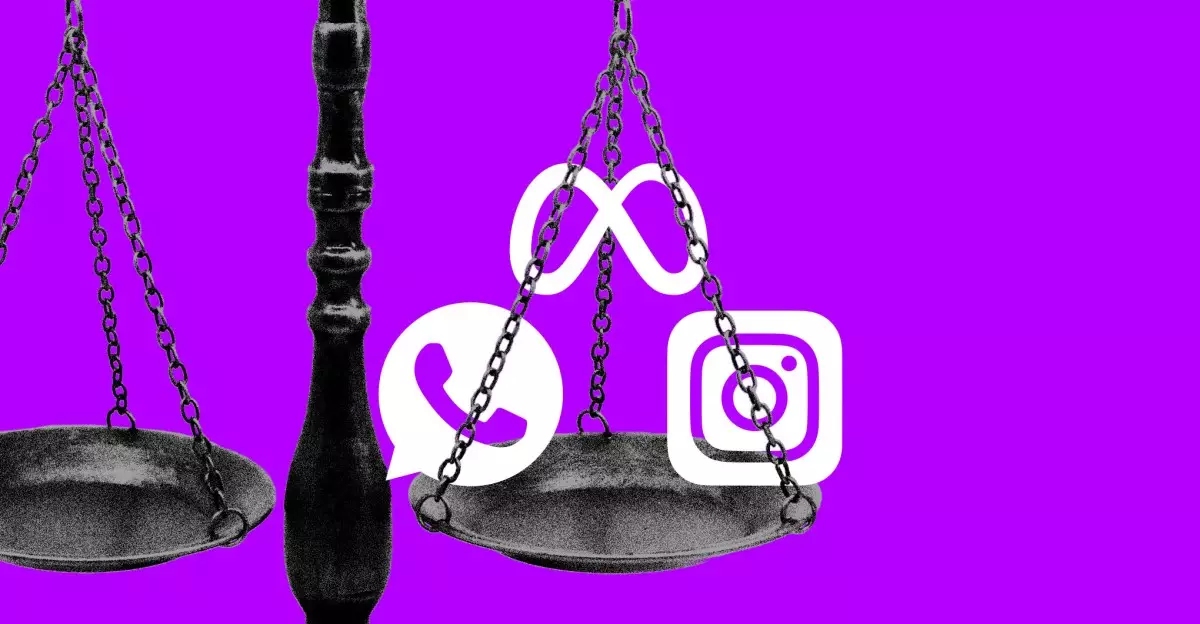The ongoing Federal Trade Commission (FTC) trial against Meta is not merely a lawsuit; it stands as a critical examination of monopolistic practices in the tech industry, centering on none other than Mark Zuckerberg, the company’s enigmatic CEO. The government claims he orchestrated a strategy to eliminate competition through acquisitions, notably of WhatsApp and Instagram—apps that now dominate digital communication and social networking. This trial scrutinizes the decisions and motivations of a man who transformed the landscape of digital interaction, raising questions about ethics, competition, and the future of social media.
Zuckerberg’s Defense: A Visionary or a Monopolist?
During the trial, Zuckerberg’s testimony presented a complex portrait. When asked about his $19 billion purchase of WhatsApp in 2014, his enthusiastic reply—“I’d do it again”—evoked mixed reactions. To some, this reflects sheer determination; to others, it suggests a deeper motive rooted in acquiring assets to quench potential competition. According to Zuckerberg, he perceived WhatsApp not as a rival but as a unique opportunity to enhance Facebook’s portfolio amid changing user behaviors. Public interactions were trending away from traditional feeds, he argued, transitioning toward intimate messaging.
However, there lies a contradiction: if his intentions were so altruistic and forward-thinking, why did the FTC emphasize what it termed a “catch-and-kill” strategy? Understanding Zuckerberg’s perspective demands a closer look at how the tech landscape was evolving around him, yet it also raises ethical dilemmas surrounding his decision-making process.
WhatsApp: Tool for Engagement or Monopolistic Strategy?
Zuckerberg’s portrait of WhatsApp is as a valuable asset that provided leverage against giants like Apple and Google, with whom he openly contended over market share and app distribution rights. In his eyes, acquiring WhatsApp was prompted by a valid strategy—it was a way to bolster Facebook’s position in an increasingly competitive marketplace. However, as he testified, he also felt it was “hard to express the disdain” WhatsApp’s founders had toward social media and advertising, indicating a fundamental misalignment between their values and Facebook’s commercial ambitions.
The email exchanges that emerged during the trial paint a compelling picture of an executive convinced of his course. Zuckerberg described Jan Koum and Brian Acton—the co-founders of WhatsApp—as “unambitious,” reflecting a sentiment that could easily morph into justification for acquisition rather than partnership. Was this foresight, or merely an expedient dismissal of potential competitors?
Instagram: Nurturing Growth or Neutralizing Threats?
Contrastingly, Zuckerberg’s acquisition of Instagram is shadowed in corporate intrigue. Here, the implications are just as profound. Internal communications revealed that he viewed Instagram not as a benign addition, but rather as a potential threat demanding neutralization. Fearing that Instagram could detract from Facebook’s engagement metrics, he advised its team to distance themselves from Facebook’s ecosystem—a move contrary to the spirit of collaboration.
Even though this initial directive didn’t sit well with Instagram’s co-founders, as acknowledged by Zuckerberg, it also provides an unsettling glimpse into corporate maneuvers that prioritize market dominance over cooperative growth. This raises an important question: Can innovation thrive under the weight of aggressive acquisition strategies? For Zuckerberg, the success of Instagram validates his approach; it gained over 2 billion users—a fact he headlines to rebut accusations of undermining competition.
A New Paradigm for Tech Companies
The outcomes of this trial could redefine what it means to compete within the tech space. If it’s determined that acquisitions were intended solely to stifle competition, it could compel tech giants to reconsider their approaches to growth. Zuckerberg’s testimony, laden with both confidence and defensiveness, suggests that he sees himself as a steward of innovation rather than its destroyer. Yet, the juxtaposition of his business actions against the ethical implications leaves a lingering ambiguity about what leadership in the digital age should resemble.
In a broader sense, the trial symbolizes the evolving relationship between regulators and tech companies—where the boundaries of innovation and fair competition are intensely scrutinized. The tech industry stands on the precipice of potential reform and increased oversight, propelled by public sentiment and governmental vigilance.
The courtroom drama will continue, but the implications of Facebook’s past decisions hang heavily over its present. As Zuckerberg navigates this precarious landscape, we’re left to ponder: do we trust a leader who claims to be building for the future, or do we regard him with skepticism, suspecting that the roots of his endeavors might be tangled in monopolistic soil?

